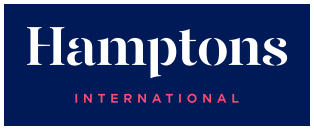How to leverage maximum value from a rental investment
Category Rentals
How to leverage maximum value from a rental investment
Investing in a rental property holds significant advantages for those seeking to build long-term wealth and generate a steady stream of income. It can provide a reliable source of cash flow with the monthly rental payments used to contribute to covering mortgage payments, maintenance, and potentially generate a profit.
Over time, as the property appreciates in value, the investor can benefit from capital appreciation, further enhancing their overall return on investment. There are also potential tax benefits such as deductions for maintenance and repairs.
Owning a rental property also allows investors to take advantage of potential wealth-building strategies, such as leveraging equity to acquire additional properties or refinancing to fund other investment opportunities.
Ultimately, investing in a rental offers the opportunity for both immediate income and long-term wealth creation, but also requires hands-on management. According to Seeff’s rental agents a rental property must be effectively managed to ensure it maintains its investment value and revenue stream.
Ideally, you should run your rental property like a business. Keep the rentals in a separate bank account and ensure you have a reserve fund for maintenance and to cover property related costs. Ensure there is adequate funds to cover the monthly outlays such as property taxes.
A good rental agreement should be entered into with the tenant to cover various aspects related to the conditions upon which the tenant may occupy the property. This should include the monthly rental, escalation if there is a renewal, the period of the lease, conditions around cancellation etc.
Ensure the rental deposit is invested in an interest bearing account for the benefit of the tenant. No part of the deposit may be used for maintenance or any other costs. Only at the end of the lease can the deposit be released, and costs be deducted. These costs must also be as prescribed.
Maintain the property in a good condition. Only damage caused by the tenant and verified by the outgoing inspection can be claimed against the deposit or from the tenant. The landlord must provide proof of the costs incurred.
A proper ingoing inspection is a prerequisite to ensure the landlord and tenant agree about the condition of the property. An outgoing inspection must be done at the end of the lease to compare and assess any damages for which the tenant will be liable.
The property must also be fully compliant as required by the local municipal regulations. This includes the electrical and water installation, gas and any fixtures including a swimming pool and any automated garage doors, gates, etc. The tenant must be given all remotes and operating instructions.
The lease agreement should stipulate that the tenant must maintain the property in the condition that it was received. The landlord will, however, be responsible for maintenance issues around the structure and installations including the geyser, waterproofing and so on.
The landlord should ensure the property is inspected from time to time. This should be provided for in the lease agreement with suitable times to be arranged with the tenant. This will enable the landlord to spot if there are any maintenance issues which need attention.
While the tenant is responsible for insuring the contents of the rental property, the landlord must insure the property itself. The landlord should also have adequate personal liability insurance to cover any possible risk which may result from the tenancy.
The landlord should also ensure that the tenant and the monthly payments are managed. Always ensure property processes are followed in the event of non-payment. Seek legal advice, or better yet, work with a rental agency such as Seeff to manage your property.
Seeff is a leading rental agency, and we provide best practice solutions to tenant sourcing and rental property management backed by up to date processing, technology and legal compliance. Contact your nearest Seeff branch for more information.
Author: Gina Meintjes




 Beyond your expectation
Beyond your expectation